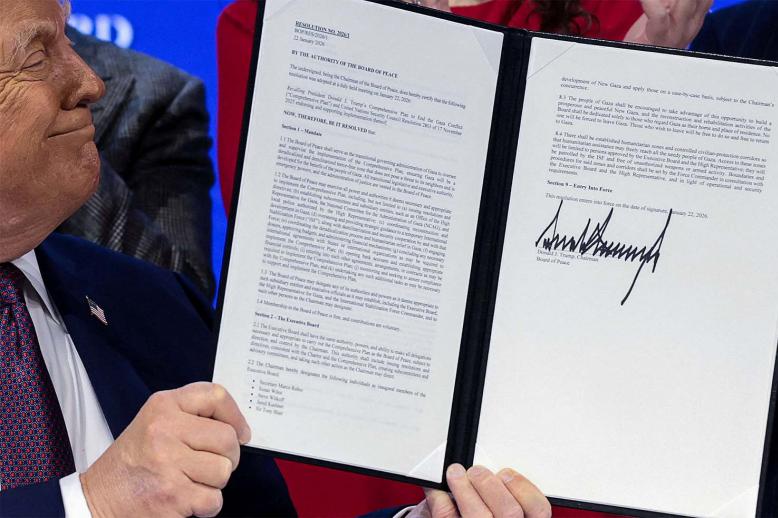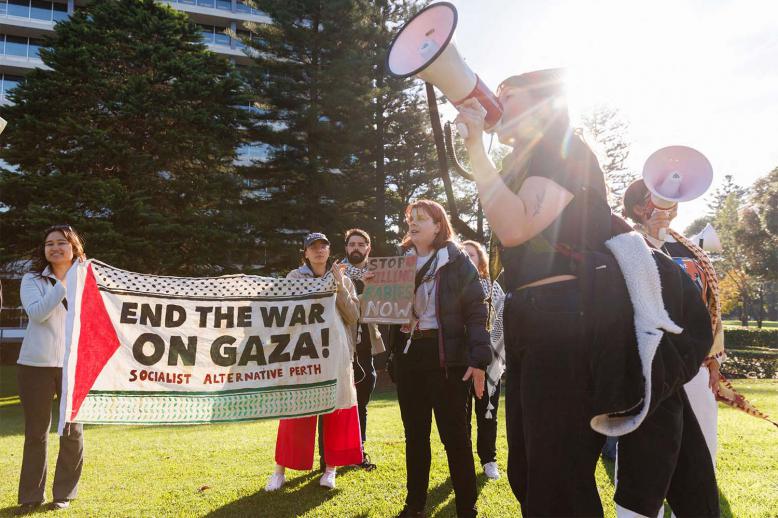Sudan needs a new generation of leaders
It is important that Saudi Arabia and the United Arab Emirates announce financial assistance to Sudan in these circumstances. This step reflects political courage on the one hand and foresight on the other. It is an investment in the future before anything else and a bet on Sudan and its wealth and the ability of its people to learn from experiences.
The Saudi-Emirati initiative proves to the Sudanese people that there are countries that are prepared to stand by them at this critical stage. It also reveals Riyadh’s and Abu Dhabi’s political boldness and determination to take the initiative, especially in areas where dangerous developments could threaten Gulf security in particular and Arab security in general.
It would not have been possible to get rid of Omar al-Bashir’s regime, a backward and corrupt one by all standards, without the Sudanese people taking to the streets. People were so determined to get rid of al-Bashir that they held on for five consecutive months.
If removing al-Bashir from power was like winning a battle, then winning the war will be the elimination of the remnants of a regime that enabled the Muslim Brotherhood, in all its hues and outer cloaks, to infiltrate sensitive positions in the Sudanese state, especially related to education, culture and security.
The important thing remains what the Sudanese people have done. These brave people stood up to al-Bashir and said, “Enough!” They knew he had no more rabbits to pull out of his magician’s hat.
Now, it is possible to start building on solid foundations, especially if it turns out that Abdel Fattah al-Burhan, who stands at the head of the Transitional Military Council, is an officer of a different kind, that he is capable of compromising with civil society and of agreeing to speed up the formation of a civilian government that would undertake a thorough and deep cleansing operation to uproot the remnants of the Muslim Brotherhood in the recesses of the state.
When, in the 1990s, al-Bashir eliminated his Islamist rivals led by Hassan al-Turabi, it wasn’t enough to end the threat posed by the Muslim Brotherhood to Sudan’s future. On the contrary, al-Bashir, who remained in power for 30 years, combined military dictatorship with all sorts of opportunists who use Islam for political ends. Al-Bashir ended up with the worst among the military and the worst among the Muslim Brothers who invested in backwardness.
The best proof of the Muslim Brotherhood’s incompetence is what’s happening in the Gaza Strip. Hamas captured the Strip in June 2007 and has no intention of relinquishing power despite the numerous disasters it brought onto the besieged people of Gaza. Hamas has done nothing besides serving Israel’s political interests by burying the Palestinian national project.
In 2013, Saudi Arabia and the United Arab Emirates, with the participation of Kuwait, supported Egypt when the Egyptians decided to get rid of the Muslim Brothers’ regime. Granted, the Brotherhood had taken power through the ballot box but right from the beginning, there was a popular rejection of the Brotherhood.
The Muslim Brothers had claimed they were not interested in political power and had hidden their lust for it quite well but, once they seized power, with outside help, of course, they wouldn’t let go of it.
With Muhammad Morsi’s election as president, the Egyptian Muslim Brothers had fulfilled their dream. Among those who helped them reach that dream were senior army officers who made pacts with the Brotherhood before the overthrow of Hosni Mubarak. It was a real and genuine popular revolution that brought Mubarak down but the Muslim Brothers knew how to exploit it to their advantage.
Regardless of the objective assessment of the situation in Egypt after the revolution against the Muslim Brotherhood, there is no doubt that the Saudi-Kuwaiti-Emirati support played a role in 2013 in preventing the fall of this Arab country.
It can’t be denied that Egypt is experiencing a stage of economic growth. Egypt is also playing a major role in fighting all forms of terrorism, especially in Gaza, the Sinai desert and Libya. Quite obviously, the Saudi-Kuwaiti-Emirati bet on Egypt was wise.
Still, there is a need for more political openness in Egypt today to close all doors for a renewed infiltration of the Muslim Brotherhood into the administrations and institutions of the state.
Perhaps the main question is: Where is Sudan heading?
Much will depend on what Burhan does. Will he be able to break away from the usual pattern of ridiculous and selfish behaviour that characterised many military officers who have taken power in the Arab world or will he act in a civilised manner?
Those who rose up against al-Bashir and the misery that accompanied his 30 years in power have a great responsibility to bear. We don’t know if there are political leaders of a different kind in Sudan. The country needs leaders able to learn from the recent past, that is, since Sudan’s independence in 1956 and the ensuing civil governments.
Sudan’s problem is that its political leaders have never been able to shoulder their responsibilities. Those leaders facilitated the return of the military to power on three occasions, in 1958 thanks to Ibrahim Abboud, in 1969 thanks to Jaafar Nimeiry and in 1989 thanks to al-Bashir.
All that the military had done, especially during Nimeiry’s and al-Bashir’s eras, was plunge Sudan into backwardness for the sake of the extremist religious current, a current that remains retrograde despite the Muslim Brotherhood’s efforts to cover it up with shiny slogans.
What about the current stage? What if a civilian government takes power?
It is certain that Sudan needs new political leaders of a different kind and not just army officers who say their mission is limited to defending the country and not to exercise the powers of the president and ministers. It is also certain that these new political leaders must prove that Arab support for Sudan is well-placed.
Khairallah Khairallah is a Lebanese writer.
This article was originally published in The Arab Weekly.







